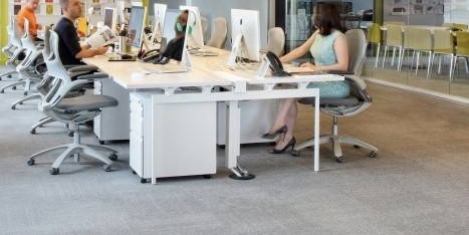March 10, 2017
Days lost to illness in the UK down to lowest level in a quarter of a century 0
 The number of days taken as sick leave in the UK has fallen to the lowest rate since records began, according to the latest release of data from the Office for National Statistics. In 2016, about 137 million working days were lost to illness, equivalent to 4.3 days per worker. The latest figures represent the lowest number of days lost since reporting began in 1993. Days lost have been falling since 2003 and particularly since the economic downturn of 2007-8, notes the ONS. This might suggest people are struggling in to work when ill out of fear, but that may be only part of the story as the growth in flexible working will also have had a significant impact. As always, the data throws up some interesting comparisons between demographic groups and sectors although the context is not always as clear or as straightforward as is commonly supposed.
The number of days taken as sick leave in the UK has fallen to the lowest rate since records began, according to the latest release of data from the Office for National Statistics. In 2016, about 137 million working days were lost to illness, equivalent to 4.3 days per worker. The latest figures represent the lowest number of days lost since reporting began in 1993. Days lost have been falling since 2003 and particularly since the economic downturn of 2007-8, notes the ONS. This might suggest people are struggling in to work when ill out of fear, but that may be only part of the story as the growth in flexible working will also have had a significant impact. As always, the data throws up some interesting comparisons between demographic groups and sectors although the context is not always as clear or as straightforward as is commonly supposed.









 A majority (84 percent) of British employees use their smartphones at work, with 78 percent regularly responding to text messages during working hours and on average spending as many as 120 hours per year using their smartphones during the working day claims new research. The data, compiled by LaptopsDirect.co.uk, also found that 59 percent regularly take personal phone calls whilst working; 52 percent admit to answering instant messages via platforms such as Whatsapp and Facebook, and 9 percent have sent a Snapchat from their workplace. Employers are not completely against the use of smartphones, though under half (44 percent) permit the reasonable use of smartphones, according to the research; but 14 percent of respondents admit to having been told off for using smartphones at work, and 4 percent have been disciplined for use of their own tech during work time. Of most concern for employers is the fact that more than a third (38 percent) of respondents regularly check their social media accounts while at work.
A majority (84 percent) of British employees use their smartphones at work, with 78 percent regularly responding to text messages during working hours and on average spending as many as 120 hours per year using their smartphones during the working day claims new research. The data, compiled by LaptopsDirect.co.uk, also found that 59 percent regularly take personal phone calls whilst working; 52 percent admit to answering instant messages via platforms such as Whatsapp and Facebook, and 9 percent have sent a Snapchat from their workplace. Employers are not completely against the use of smartphones, though under half (44 percent) permit the reasonable use of smartphones, according to the research; but 14 percent of respondents admit to having been told off for using smartphones at work, and 4 percent have been disciplined for use of their own tech during work time. Of most concern for employers is the fact that more than a third (38 percent) of respondents regularly check their social media accounts while at work.



























